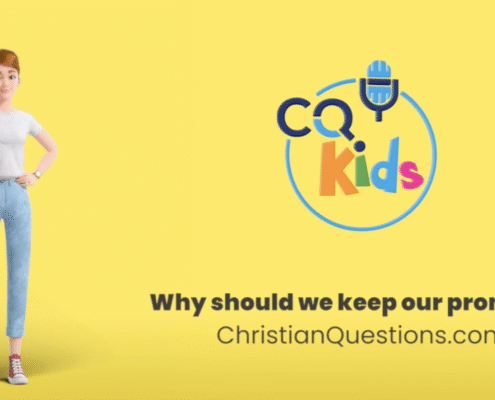Ep.: Why does God allow addicts to relapse?
The LORD wants to help us in the overcoming process, whatever it is that we struggle against.
For this is what the high and lofty One says, who inhabits eternity, whose name is Holy: He lives in the height and in holiness, and also with the one who is of a contrite and humble spirit, to revive the spirit of the humble, and to revive the heart of the contrite. Isaiah 56:15
And our God of all grace, who summoned you to his eternal glory in Christ, after you have suffered a while, will restore you and make you strong, firm and steadfast. 1 Peter 5:10
I know the plans I have for you, declares the LORD, plans to prosper you and not to harm you, plans to give you a hope and a future. Jeremiah 29:11
As we are imperfect we may fail but still pursue the overcoming process in our Christian walk.
A just man falls seven times, but rises up again. Proverbs 24:16
Watch and pray so that you shall not fall prey to temptation. The spirit is willing but the flesh is weak. Matthew 26:41
Things that can affect and prevent repeated relapse:
- If we have repeated patterns of failure, especially in the realm of substance abuse, there may be something missing in our recovery process. One with such a struggle needs to seek help and advice from appropriate sources. Plans go wrong for lack of advice; many advisers bring success. Proverbs 15:22 Many Christians have benefitted from involvement in recovery programs, ie Alcoholics Anonymous, and other forms of appropriate Christian counseling.
- Submit yourselves to God. Resist the devil and he will flee from you. James 4:7 There may be things in the way of entire submission to the Lord, and things in the way of effectively resisting the sin, in this case the addiction.
- Prayer is crucial. …make it your habit to confess your sins to one another and to pray for one another, so that you may be healed. The prayer of a righteous person is powerful and effective. James 5:16 ISV
- It is very important that the problem be honestly shared, first with the Lord, and then with qualified people and friends. He who conceals his transgressions will not prosper. But whoever confesses and turns away from his sins will find compassion and mercy. Proverbs 28:13 Confession of the issue is important, as well as turning away from the addictive behavior. This may require help with the emotional issues behind the addiction.
- Sometimes we have blind spots and need the counsel of the LORD and other people to help us to see the sources of weakness that we may not be able to identify or know how to deal with. Who can detect his own mistake? Cleanse me from hidden sin. Psalm 14:12
- Help may be needed in developing a spiritual strategy for avoiding and dealing with situations that can be triggers to relapse, being in consistent contact with those who can help especially in vulnerable times, and in developing appropriate skills that can help deal with these issues.
- Having a list of specific promises from the Bible to claim and meditate on can help especially in vulnerable moments. Thy Word have I hid in my heart that I might not sin against thee. Psalm 119:11
- Exercise and a healthy diet can play a part in the ability to think clearly and to respond appropriately to challenges. …do you not know that your body is a temple of the holy spirit within you, whom you have from God? You are not your own, for you were bought with a price. So glorify God in your body. 1 Corinthians 6:19-20
- It is important to associate with friends and people who support the recovery process and minimize contact with those who do not support this godly process.“Bad company corrupts good character…” or as the NLV puts it: Bad company ‘corrupts good habits’ 1 Corinthians 15:33.
Mental, physical and spiritual recovery from addiction is a process and certainly requires wholehearted attention and commitment.
To learn more about addiction listen to, “Could an Addiction Block My Christian Growth?”
Related Videos

How Do I Reconnect With God?

VIDEO: How Do I Reconnect With God?
 https://resources.christianquestions.com/wp-content/uploads/2025/02/21092051/theme-3.jpg
1579
1899
krisknap77
https://resources.christianquestions.com/wp-content/uploads/2024/03/28151014/ChristianQuestions-Logo.png
krisknap772025-02-24 19:40:222025-04-07 14:38:42Will God Forgive Me?
https://resources.christianquestions.com/wp-content/uploads/2025/02/21092051/theme-3.jpg
1579
1899
krisknap77
https://resources.christianquestions.com/wp-content/uploads/2024/03/28151014/ChristianQuestions-Logo.png
krisknap772025-02-24 19:40:222025-04-07 14:38:42Will God Forgive Me?
VIDEO: Will God Forgive Me?

VIDEO: How Can We Find Glory In Our Weaknesses? Podcast Highlight

VIDEO: How Did the Apostle Paul Reset His Life? Podcast Highlight

VIDEO: What Lessons Can We Learn From Peter About Dealing With Social Pressure? Podcast Highlight

How Will I Choose to Live the Life That’s Ahead of Me?

VIDEO: How Will I Choose to Live the Life That’s Ahead of Me?

Why Did the Angel Say “Fear Not”?

VIDEO: Why Did the Angel Say “Fear Not”?

VIDEO: How Did Peter Overcome His Fear on the Mount of Transfiguration? Podcast Highlight
Ep.1239: How Do We Best Support Our Kids Through Their Hardest Times?
Learning to be approachable, handle trauma and work through rebellion
If you do not have a password, please subscribe to our FREE Premium Content for the Full Edition version of CQ Rewind. The welcome message will contain your password, and a reminder will be sent each week when the CQ Rewind is available online for you to read, print, or download.
CHAPTERS
Theme Scripture: Isaiah 50:7
Parenting is a difficult and often unpredictable task. In Episode 1238, we laid a scripturally-principled foundation for managing our parental “what ifs” and imperfections. We also addressed the ever-present challenge of growing confidence and competence in our children as we slowly release our parental control over them. With all of this in place, it is now time to delve into several of the hard and practical matters of bringing children up. The structure of our present society extols a path and process of raising children that is often fundamentally opposed to true Christian beliefs. This leaves us with a lot of questions that may be hard to answer as we seek to apply principles of godliness. The good news is, no matter the question, there is always clear Bible-based instruction available.
As Christians, we should consider the Bible as our guidebook and final word of authority for every aspect of our lives. Even though it does not give us chapter after chapter of parenting advice, it does give us sound, time-tested principles to handle any scenario we parents may face in raising children. This is not only comforting; it strengthens us as well. Parenting in the 21st century looks and feels entirely different than it was thousands of years ago.
Here is a sampling of the questions many of us as parents worry about:
- How do we attain and maintain open and honest relationships with our kids as they go through the many different stages of growing up? Though the Bible may seem silent on this, the principles of God’s approachability to us as His children speaks volumes. When we understand how He loves, listens to and responds to us, we begin to see the patterns and perspectives that parents can and should apply to our own families.
- What do we do when something bad - really bad - happens to our children? On top of being a parent's worst fear, this kind of experience brings us to a place of alarming uncertainty. Our insecurity can begin to be quelled when we again go back to Scripture. We need to draw on the scriptural teachings that focus on what it takes to cope with and overcome our own hard experiences. These principles direct us in how to care for our children in their tragedies.
- What do we do when one or more of our children gets into a really rebellious stage of life? This is yet another powerful parental concern that shouts out for guidance and direction.
Check out our July 25, 2022 podcast, “How Do We Best Support Our Kids Through Their Hardest Times?” for answers as we walk through each and every one of these questions individually. We draw upon God’s perspective as our heavenly Father. Then we delve into many of the biblical teachings regarding building up those who are struggling, learning to apply them to our own children. Join us for a journey through the Bible that brings practical application, hope and courage to our parenting experience.
Watch Our Episode Preview
Related Episodes

VIDEO: When Jesus Said He Is “The Way,” What Did He Mean? Podcast Highlight

John 14:6—How Is Jesus ‘the Way’?

VIDEO: John 14:6-How Is Jesus ‘the Way’?

How Can I Cope With Depression?

VIDEO: How Can I Cope With Depression?

How Do I Reconnect With God?

VIDEO: How Do I Reconnect With God?

How Can I Best Share the Gospel With Others?

VIDEO: How Can I Best Share the Gospel With Others?

VIDEO: What Does The Phrase, “Love Is Not Provoked,” Mean? Podcast Highlight

VIDEO: How Do We Know If We Are Inwardly Arrogant? Podcast Highlight

Can I Really Love Someone I Don’t Like?
VIDEO: How Do We Best Support Our Kids Through Their Hardest Times?
What do we do when something really bad happens to our children? Watch this short vlog then listen to the full podcast of the same name for more details.
Related Videos

VIDEO: When Jesus Said He Is “The Way,” What Did He Mean? Podcast Highlight

John 14:6—How Is Jesus ‘the Way’?

VIDEO: John 14:6-How Is Jesus ‘the Way’?

How Can I Cope With Depression?

VIDEO: How Can I Cope With Depression?

How Do I Reconnect With God?

VIDEO: How Do I Reconnect With God?

How Can I Best Share the Gospel With Others?

VIDEO: How Can I Best Share the Gospel With Others?

VIDEO: What Does The Phrase, “Love Is Not Provoked,” Mean? Podcast Highlight

VIDEO: How Do We Know If We Are Inwardly Arrogant? Podcast Highlight

Can I Really Love Someone I Don’t Like?
Ep.: Why was the devil sent here?
Why does God permit evil? Why was Satan allowed to tempt Eve in the first place?
Some background: Lucifer was a “morning star” and prominent spirit being in the heavenly realm.
“How you have fallen from heaven, O star of the morning, son of the dawn! You have been cut down to the earth, you who have weakened the nations!” (Isaiah 14:12)
Jesus himself was called a “morning star” in Revelation 22:16: I, “Jesus, have sent My angel to testify to you these things for the churches. I am the root and the descendant of David, the bright morning star.”
- Satan as Lucifer was an early and bright and powerfully harmonious creation of God
- He was one of two known “morning stars”
Prophetically he is spoken of in Ezekiel 28, represented by the King of Tyre:
“Again in the word of the LORD came to me saying, ‘Son of man, take up a lamentation over the king of Tyre and say to him, Thus says the Lord GOD, You had the seal of perfection, full of wisdom and perfect in beauty. You were in Eden, the garden of God; every precious stone was your covering:…On the day that you were created they were prepared. You were the anointed cherub who covers, and I placed you there.” (Ezekiel 28:11-14)
God gave the privilege of oversight of this physical creation to one of his highest and most respected! He was the “covering cherub” in the Garden of Eden, sent to protect the human creation.
“You were on the holy mountain of God; You walked in the midst of the stones of fire. You were blameless in your ways from the day you were created until unrighteousness was found in you. By the abundance of your trade you were internally filled with violence, and you sinned; therefore I have cast you as profane from the mountain of God. And I have destroyed you, O covering cherub, from the midst of the stones of fire. Your heart was lifted up because of your beauty; you corrupted your wisdom by reason of your splendor. I cast you to the ground; I put you before kings, that they may see you.” (Ezekiel 28:14-17)
What a contrast between what Lucifer was given and what he chose to do! He was given authority, beauty, wisdom, splendor and privilege but chose to take credit for all of it and demand more!
Isaiah speaks of the transformation in Lucifer’s mind, wanting to be like God:
“You have been cut down to the earth, you who have weakened the nations! But you said in your heart, ‘I will ascend to heaven; I will raise my throne above the stars of God, and I will sit on the mount of assembly in the recesses of the north. ‘I will ascend above the heights of the clouds; I will make myself like the Most High.’” (Isaiah 14:12-15)
Lucifer was looking for a dominion – power and authority. He looked to usurp the rights of his Creator. However, God knew what would happen, permitted it and provided a solution by already providing for the Lamb before the foundation of the world (1 Peter 18:20).
God allowed Satan to do what he did because He wanted humans and spirit beings to have the freedom to choose their behavior, also known as “free will.” He didn’t want to create robots that had no choice except to obey Him.
God wants intelligent and willing obedience, rather than pre-programmed service to Him. This means we (including Satan and the angels) have a choice in what we do.
Lucifer had free will to choose good, but he chose evil. He tempted Eve, who gave the fruit to Adam and then HE sinned too, causing a “chain reaction of sin” that affects all of us.
God’s wisdom permitted Satan’s sin, even though it has resulted in temporary pain, sickness, and death. This permission of evil for a time is providing an everlasting learning experience that will never be forgotten. God is allowing us to experience the painful effects of what the sin of disobedience brought. However, it’s important to remember God promised a future earthly kingdom, in which everyone will be raised from the sleep of death and given an opportunity to live a righteous, everlasting life without sin.
When everyone is raised from death and begins obeying the kingdom rules, they will gradually receive blessings better than they could ever imagine. Everyone will remember the powerful lesson that choosing sin produces terrible consequences that lead to death. Because they experienced first-hand the damaging effects of sin, we believe most people will choose to live good, righteous lives on a perfect earth.
Revelation 21:4 (NLT) says,
“He will wipe every tear from their eyes, and there will be no more death or sorrow or crying or pain. All these things are gone forever.”
God’s divine plan to temporarily allow evil for a time was best for everyone to learn an everlasting lesson: sin and disobedience brings sadness and death, while obedience to God and His rules brings happiness and blessings.
Related Videos

VIDEO: When Jesus Said He Is “The Way,” What Did He Mean? Podcast Highlight

John 14:6—How Is Jesus ‘the Way’?

VIDEO: John 14:6-How Is Jesus ‘the Way’?

How Can I Cope With Depression?

VIDEO: How Can I Cope With Depression?

How Do I Reconnect With God?

VIDEO: How Do I Reconnect With God?

How Can I Best Share the Gospel With Others?

VIDEO: How Can I Best Share the Gospel With Others?

VIDEO: What Does The Phrase, “Love Is Not Provoked,” Mean? Podcast Highlight

VIDEO: How Do We Know If We Are Inwardly Arrogant? Podcast Highlight

Can I Really Love Someone I Don’t Like?
Ep.1238: Is Parental Discipline of Our Children a Thing of the Past?
Coping with “what ifs,” our own faults and proper disciplining as parents
If you do not have a password, please subscribe to our FREE Premium Content for the Full Edition version of CQ Rewind. The welcome message will contain your password, and a reminder will be sent each week when the CQ Rewind is available online for you to read, print, or download.
CHAPTERS
Theme Scripture: Proverbs 3:1-2
Raising children never has been an easy task. Methods for parenting have varied dramatically based on what time in history you are bringing up children. Disciplining children in an “appropriate” way looks entirely different now than it did just a few generations ago. The culture you live in as you raise a family also has a powerful impact. We live in an age and culture of technology, where much of life is easily lived through watching or typing onto the screen of your phone. This convenience carries a great potential cost. Are we allowing technology and social media to not only unduly influence our children, but ourselves as well? Are we Christian parents listening to social suggestions regarding what our children need to the exclusion of going back to the basic biblical principles for those answers?
No matter what age in time we live in and no matter what culture we find ourselves a part of, we all want something good or special for our children. A portion of the book of Proverbs is King Solomon writing to his son. He shares some of the wisdom God blessed him with, his life experiences and his warnings about the pitfalls of growing up. As we read these things, it becomes apparent that little has changed over thousands of years when it comes to loving and protecting our children.
What if?
While the desire is the same, the experience of raising children has been completely overhauled. Because the world now fits into the palm of your hand in the form of a cell phone, the variety of challenges we face would be unrecognizable to Solomon. One simple example: the parental challenge of managing all of the “what ifs” their child may face. In ancient times, the “what ifs” were about things like crops, herds, weather, warring factions and overall security. Now our "what if" list is endless. What if my child has emotional, learning or physical issues? What if they get bullied or become a bully?
Christian parents don't need to be overwhelmed!
Just putting the “what ifs” of raising children in perspective is a massive undertaking. While the Bible does not deal with each and every one of them, it does teach us the principles we need to face ALL of them. Interestingly, there is comparatively little written in the Bible about child rearing. The principles Christian parents seek are found in passages that help us cope with the unknown. There is also abundant biblical teaching that shows us how God is our Father and how He parents us. Applying these principles is learning from the best Father ever!
Check out our July 18, 2022 podcast, “Is Parental Discipline of Our Children a Thing of the Past?” for more. We not only handle the “what ifs” of life, we also delve into coping with being a very imperfect parent and appropriate disciplining tactics. Parenting is massively difficult. Join us as we examine its challenges under the bright light of biblical principle and teaching. Parenting will never be the same!
Watch Our Episode Preview
Related Episodes

VIDEO: When Jesus Said He Is “The Way,” What Did He Mean? Podcast Highlight

John 14:6—How Is Jesus ‘the Way’?

VIDEO: John 14:6-How Is Jesus ‘the Way’?

How Can I Cope With Depression?
 https://resources.christianquestions.com/wp-content/uploads/2025/06/24110928/Screenshot-2025-06-18-at-8.59.06%E2%80%AFPM-3.png
1250
2360
Teresa Sutherland
https://resources.christianquestions.com/wp-content/uploads/2024/03/28151014/ChristianQuestions-Logo.png
Teresa Sutherland2025-06-23 00:00:582025-06-24 11:07:27VIDEO: Why should we keep our promises?
https://resources.christianquestions.com/wp-content/uploads/2025/06/24110928/Screenshot-2025-06-18-at-8.59.06%E2%80%AFPM-3.png
1250
2360
Teresa Sutherland
https://resources.christianquestions.com/wp-content/uploads/2024/03/28151014/ChristianQuestions-Logo.png
Teresa Sutherland2025-06-23 00:00:582025-06-24 11:07:27VIDEO: Why should we keep our promises?
VIDEO: How Can I Cope With Depression?

How Do I Reconnect With God?

VIDEO: How Do I Reconnect With God?

How Can I Best Share the Gospel With Others?

VIDEO: How Can I Best Share the Gospel With Others?

VIDEO: What Does The Phrase, “Love Is Not Provoked,” Mean? Podcast Highlight

VIDEO: How Do We Know If We Are Inwardly Arrogant? Podcast Highlight
Ep.: What is the “lamb’s book of life” and how do I know if my name is in it?
All such Christians are in preparation of character in the present, in order to serve as “priests of God and of Christ” to uplift the world of mankind in the Millennial kingdom (Revelation 20:6).
We term this commitment “consecration,” drawing from Leviticus 8:33, which speaks of the days of “consecration” of the priests in the Old Testament. The seven days of their consecration are a picture, or illustration, of our preparation during our lifetime, to serve with Christ to bless mankind in the kingdom.
If we have made this commitment before God, it is customary practice to symbolize this decision by water baptism. This is symbolic of our immersion into the will of God. Thereafter, we look forward by faith to a heavenly resurrection, providing that we follow this “narrow … way, which leadeth unto life,” to the end of our present life (Matthew 7:14). If we do this, we may rest in faith that our names are registered in the book of life.
.
The precise expression “Lamb’s Book of Life” appears in Revelation 21:27. The context there, from Revelation 20 forward, is about the kingdom of Christ established at the close of the present time called the “Gospel Age.” In this case it refers to the world of mankind recovered and committed during the “Millennial Age.” The heavenly calling will have closed by that time — the faithful of the world then will receive everlasting life on earth, as offered to Adam and Eve at the beginning.
Related Videos

VIDEO: When Jesus Said He Is “The Way,” What Did He Mean? Podcast Highlight

John 14:6—How Is Jesus ‘the Way’?

VIDEO: John 14:6-How Is Jesus ‘the Way’?

How Can I Cope With Depression?
 https://resources.christianquestions.com/wp-content/uploads/2025/06/24110928/Screenshot-2025-06-18-at-8.59.06%E2%80%AFPM-3.png
1250
2360
Teresa Sutherland
https://resources.christianquestions.com/wp-content/uploads/2024/03/28151014/ChristianQuestions-Logo.png
Teresa Sutherland2025-06-23 00:00:582025-06-24 11:07:27VIDEO: Why should we keep our promises?
https://resources.christianquestions.com/wp-content/uploads/2025/06/24110928/Screenshot-2025-06-18-at-8.59.06%E2%80%AFPM-3.png
1250
2360
Teresa Sutherland
https://resources.christianquestions.com/wp-content/uploads/2024/03/28151014/ChristianQuestions-Logo.png
Teresa Sutherland2025-06-23 00:00:582025-06-24 11:07:27VIDEO: Why should we keep our promises?
VIDEO: How Can I Cope With Depression?

How Do I Reconnect With God?

VIDEO: How Do I Reconnect With God?

How Can I Best Share the Gospel With Others?

VIDEO: How Can I Best Share the Gospel With Others?

VIDEO: What Does The Phrase, “Love Is Not Provoked,” Mean? Podcast Highlight

VIDEO: How Do We Know If We Are Inwardly Arrogant? Podcast Highlight
VIDEO: Is Parental Discipline of Our Children a Thing of the Past?
The Bible teaches principles of the “what if’s” on how to raise our children. Watch this short vlog then listen to the full podcast of the same name for more details.
Related Videos

VIDEO: When Jesus Said He Is “The Way,” What Did He Mean? Podcast Highlight

John 14:6—How Is Jesus ‘the Way’?

VIDEO: John 14:6-How Is Jesus ‘the Way’?

How Can I Cope With Depression?
 https://resources.christianquestions.com/wp-content/uploads/2025/06/24110928/Screenshot-2025-06-18-at-8.59.06%E2%80%AFPM-3.png
1250
2360
Teresa Sutherland
https://resources.christianquestions.com/wp-content/uploads/2024/03/28151014/ChristianQuestions-Logo.png
Teresa Sutherland2025-06-23 00:00:582025-06-24 11:07:27VIDEO: Why should we keep our promises?
https://resources.christianquestions.com/wp-content/uploads/2025/06/24110928/Screenshot-2025-06-18-at-8.59.06%E2%80%AFPM-3.png
1250
2360
Teresa Sutherland
https://resources.christianquestions.com/wp-content/uploads/2024/03/28151014/ChristianQuestions-Logo.png
Teresa Sutherland2025-06-23 00:00:582025-06-24 11:07:27VIDEO: Why should we keep our promises?
VIDEO: How Can I Cope With Depression?

How Do I Reconnect With God?

VIDEO: How Do I Reconnect With God?

How Can I Best Share the Gospel With Others?

VIDEO: How Can I Best Share the Gospel With Others?

VIDEO: What Does The Phrase, “Love Is Not Provoked,” Mean? Podcast Highlight

VIDEO: How Do We Know If We Are Inwardly Arrogant? Podcast Highlight
VIDEO: How can children serve God?
Parents and Bible class teachers, this short, animated, engaging video offers a list of practical examples for kids to do good things for the Lord. Subscribe to our channel at ChristianQuestions.com/YouTube and never miss a new video!
Related Videos

VIDEO: When Jesus Said He Is “The Way,” What Did He Mean? Podcast Highlight

John 14:6—How Is Jesus ‘the Way’?

VIDEO: John 14:6-How Is Jesus ‘the Way’?

How Can I Cope With Depression?
 https://resources.christianquestions.com/wp-content/uploads/2025/06/24110928/Screenshot-2025-06-18-at-8.59.06%E2%80%AFPM-3.png
1250
2360
Teresa Sutherland
https://resources.christianquestions.com/wp-content/uploads/2024/03/28151014/ChristianQuestions-Logo.png
Teresa Sutherland2025-06-23 00:00:582025-06-24 11:07:27VIDEO: Why should we keep our promises?
https://resources.christianquestions.com/wp-content/uploads/2025/06/24110928/Screenshot-2025-06-18-at-8.59.06%E2%80%AFPM-3.png
1250
2360
Teresa Sutherland
https://resources.christianquestions.com/wp-content/uploads/2024/03/28151014/ChristianQuestions-Logo.png
Teresa Sutherland2025-06-23 00:00:582025-06-24 11:07:27VIDEO: Why should we keep our promises?
VIDEO: How Can I Cope With Depression?

How Do I Reconnect With God?

VIDEO: How Do I Reconnect With God?

How Can I Best Share the Gospel With Others?

VIDEO: How Can I Best Share the Gospel With Others?

VIDEO: What Does The Phrase, “Love Is Not Provoked,” Mean? Podcast Highlight

VIDEO: How Do We Know If We Are Inwardly Arrogant? Podcast Highlight
Ep.1237: Will I Survive God’s Final Judgment?
Learning the application and meaning of the Parable of the Sheep and Goats
If you do not have a password, please subscribe to our FREE Premium Content for the Full Edition version of CQ Rewind. The welcome message will contain your password, and a reminder will be sent each week when the CQ Rewind is available online for you to read, print, or download.
CHAPTERS
Theme Scripture: Matthew 25:32-33
Talking about the Day of Judgment can be difficult. The sad truth is that as magnanimous as the love and mercy of God through Jesus are, the opportunity to fail throughout the Day of Judgment will be very real. God created humanity with free will. The Day of Judgment will be about teaching our race how to use that free will to make righteous choices that lead to eternal life. This will require accountability for all and a heartfelt focus on unlearning and renouncing all things sinful. Because these lessons will be based on the enormous firsthand experiences with sin and death we all have in this age, they will be practical, logical, appealing and learnable. Jesus’ Parable of the Sheep and Goats is a picture of the end results of these lessons.
Jesus was a master storyteller
When he spoke any one of his several parables, he always had specific lessons in mind. To teach those lessons he regularly used common, real-life examples as symbols to make his point. The Parable of the Sheep and Goats is a classic example. Jesus was teaching about the often-prophesied future judgment that will come upon all nations of the world. This particular parable was depicting the end of the Judgment Day opportunities to prove humanity’s loyalty to God. It was a story to illustrate the final accounting for each and every human being.
In some regions of the world, sheep and goats look very much the same. Everyone in Israel in Jesus’ time would have been familiar with sheep, goats and the shepherds that cared for them. The most obvious lesson of this teaching? What may look the same can bring diametrically opposed results. Jesus was establishing that the differences between being ultimately in or out of God’s favor would not be easily detectable by outward appearance. So, why use sheep and goats to illustrate this?
Temperament and behavior
In a surprising number of ways, sheep and goats are opposites. As just one example, once sheep are trained, they habitually follow their shepherd. They recognize and respond to his voice, ignoring other voices. To live an eternally righteous life will require adherence to God’s laws through Jesus. It will require being responsive - not to threats - but to the simple direction of the shepherd. Goats, on the other hand, may occasionally heed the shepherd’s voice but are often preoccupied with exploring their own path. This exemplifies a very self-righteous approach and not a humble, godly approach to life.
Check out our July 11,2022 podcast, “Will I Survive God’s Final Judgment?” for more. We compare several characteristics of sheep and goats to see what Jesus was telling us will keep individuals in or out of God’s kingdom. These differences are amazing and revealing. By using sheep and goats as examples, Jesus gives us surprising details as to what each and every person can and should strive for. The bottom line? It’s all about the heart, the very core of each person. Join us and learn how to be sheep!
Watch Our Episode Preview
Related Episodes

VIDEO: When Jesus Said He Is “The Way,” What Did He Mean? Podcast Highlight

John 14:6—How Is Jesus ‘the Way’?

VIDEO: John 14:6-How Is Jesus ‘the Way’?

VIDEO: How Will The Sons of God Help The Rest of the World? Podcast Highlight

VIDEO: What Happens To The People Who Aren’t Chosen? Podcast Highlight

VIDEO: What Challenges Exist to Narrow Who Will Be Chosen? Podcast Highlight

VIDEO: Why Did God Call The Roman Soldier Cornelius? Podcast Highlight

Why Are Many Called if Only Few Are Chosen?

VIDEO: Why Are Many Called if Only Few Are Chosen?

How Can I Cope With Depression?
 https://resources.christianquestions.com/wp-content/uploads/2025/06/24110928/Screenshot-2025-06-18-at-8.59.06%E2%80%AFPM-3.png
1250
2360
Teresa Sutherland
https://resources.christianquestions.com/wp-content/uploads/2024/03/28151014/ChristianQuestions-Logo.png
Teresa Sutherland2025-06-23 00:00:582025-06-24 11:07:27VIDEO: Why should we keep our promises?
https://resources.christianquestions.com/wp-content/uploads/2025/06/24110928/Screenshot-2025-06-18-at-8.59.06%E2%80%AFPM-3.png
1250
2360
Teresa Sutherland
https://resources.christianquestions.com/wp-content/uploads/2024/03/28151014/ChristianQuestions-Logo.png
Teresa Sutherland2025-06-23 00:00:582025-06-24 11:07:27VIDEO: Why should we keep our promises?
VIDEO: How Can I Cope With Depression?
VIDEO: Will I Survive God’s Final Judgment?
Eternal life requires heartfelt adherence to God’s Laws through Jesus. Watch this short vlog then listen to the full podcast of the same name for more details.
Related Videos

VIDEO: When Jesus Said He Is “The Way,” What Did He Mean? Podcast Highlight

John 14:6—How Is Jesus ‘the Way’?

VIDEO: John 14:6-How Is Jesus ‘the Way’?

VIDEO: How Will The Sons of God Help The Rest of the World? Podcast Highlight

VIDEO: What Happens To The People Who Aren’t Chosen? Podcast Highlight

VIDEO: What Challenges Exist to Narrow Who Will Be Chosen? Podcast Highlight

VIDEO: Why Did God Call The Roman Soldier Cornelius? Podcast Highlight

Why Are Many Called if Only Few Are Chosen?

VIDEO: Why Are Many Called if Only Few Are Chosen?

How Can I Cope With Depression?
 https://resources.christianquestions.com/wp-content/uploads/2025/06/24110928/Screenshot-2025-06-18-at-8.59.06%E2%80%AFPM-3.png
1250
2360
Teresa Sutherland
https://resources.christianquestions.com/wp-content/uploads/2024/03/28151014/ChristianQuestions-Logo.png
Teresa Sutherland2025-06-23 00:00:582025-06-24 11:07:27VIDEO: Why should we keep our promises?
https://resources.christianquestions.com/wp-content/uploads/2025/06/24110928/Screenshot-2025-06-18-at-8.59.06%E2%80%AFPM-3.png
1250
2360
Teresa Sutherland
https://resources.christianquestions.com/wp-content/uploads/2024/03/28151014/ChristianQuestions-Logo.png
Teresa Sutherland2025-06-23 00:00:582025-06-24 11:07:27VIDEO: Why should we keep our promises?
VIDEO: How Can I Cope With Depression?
Ep.1236: Can Christianity and Paganism Work Together? (Part II)
The core values of Wicca compared with biblical Christian principles
If you do not have a password, please subscribe to our FREE Premium Content for the Full Edition version of CQ Rewind. The welcome message will contain your password, and a reminder will be sent each week when the CQ Rewind is available online for you to read, print, or download.
CHAPTERS
Theme Scripture: Exodus 20:1,3
In Part I we examined modern-day Paganism and compared it with some of the most basic tenants of Christianity as revealed in the Bible. What we found were two fundamentally different approaches to life, worship and morality. We can see that as Christians, we are absolutely to love those who hold such a contrary belief system to ours, but that does not mean we support the standards they choose to live by. But what about Wicca, considered "white" witchcraft and built on the basis of Pagan beliefs? As Christians, we might simply say our answer here should be obvious. However, there are claims that the Bible is only condemnatory of black magic and black witchcraft, so Wicca is not included in those verses. Could this be true? What does the Bible really teach on these matters?
**PLEASE NOTE** We inadvertently moved the definition of one of the Hebrew words under the wrong heading for the on-air presentation. While this did slightly skew two meanings, it does not at all change the clear conclusions of these scriptures. Please refer to the corrected CQ Rewind Show Notes at ChristianQuestions.com and the Christian Questions app.
Is it possible to be Christian AND Wiccan at the same time?
There are many levels on which this question can be considered and answered. Let’s begin with the basic level of discipleship. Any disciple’s job is to learn from their teacher. They then seek to emulate what they learned in their own daily experiences to their best ability. Wicca is a spiritual system of belief that focuses on one's individual free thought and will. It is very much an earth-based perspective. As a form of Paganism, it sees divinity in all things. To be a student of Wicca, meaning a disciple of its philosophy, one must put these principles of following your own will and the revering of nature first. This is all a basis for learning how to perform the magic arts that Wicca offers.
Self-promotion or self-denial?
To be a disciple of Jesus means we are always willing to put his example before us in any matter of life. Jesus unabashedly taught us to first and foremost follow and do God’s will, especially when our own will has different objectives. He also emphatically taught that worship belongs to the one and only God and Father of us all. As Jesus’ disciples, we are obligated to put these simple principles of self-denial and focused reverence to God first. This is the very basis for learning how to transform our lives into true disciples who daily live what they believe.
When comparing the basis for Wicca with the basis for Christianity, these fundamental differences cannot be overlooked. Yet still some insist they can be combined. Their reasoning is built on several approaches. First, Jesus technically never said anything negative about any kind of witchcraft. Second, the hard Old Testament condemnations of witchcraft and the like were only directed at practices that delved into the dark arts. Wicca, they claim, is not in that category.
What now? Check out our July 4, 2022 podcast, “Can Christianity and Paganism Work Together? (Part II)" for details. We deeply examine those Old Testament condemnations, consider Jesus’ words and put the whole issue plainly on the table. Join us as we walk through the details and find the clearly defined biblical guidance to stand for godly truth.
Watch Our Episode Preview
Related Episodes

VIDEO: When Jesus Said He Is “The Way,” What Did He Mean? Podcast Highlight

John 14:6—How Is Jesus ‘the Way’?

VIDEO: John 14:6-How Is Jesus ‘the Way’?

VIDEO: How Will The Sons of God Help The Rest of the World? Podcast Highlight

VIDEO: What Happens To The People Who Aren’t Chosen? Podcast Highlight

VIDEO: What Challenges Exist to Narrow Who Will Be Chosen? Podcast Highlight

VIDEO: Why Did God Call The Roman Soldier Cornelius? Podcast Highlight

Why Are Many Called if Only Few Are Chosen?

VIDEO: Why Are Many Called if Only Few Are Chosen?

How Can I Cope With Depression?
 https://resources.christianquestions.com/wp-content/uploads/2025/06/24110928/Screenshot-2025-06-18-at-8.59.06%E2%80%AFPM-3.png
1250
2360
Teresa Sutherland
https://resources.christianquestions.com/wp-content/uploads/2024/03/28151014/ChristianQuestions-Logo.png
Teresa Sutherland2025-06-23 00:00:582025-06-24 11:07:27VIDEO: Why should we keep our promises?
https://resources.christianquestions.com/wp-content/uploads/2025/06/24110928/Screenshot-2025-06-18-at-8.59.06%E2%80%AFPM-3.png
1250
2360
Teresa Sutherland
https://resources.christianquestions.com/wp-content/uploads/2024/03/28151014/ChristianQuestions-Logo.png
Teresa Sutherland2025-06-23 00:00:582025-06-24 11:07:27VIDEO: Why should we keep our promises?
VIDEO: How Can I Cope With Depression?
VIDEO: Can Christianity and Paganism Work Together? (Part II)
Is it possible to be a Christian AND a Wiccan at the same time? Watch this short vlog then listen to the full podcast of the same name for more details.
Related Videos

VIDEO: When Jesus Said He Is “The Way,” What Did He Mean? Podcast Highlight

John 14:6—How Is Jesus ‘the Way’?

VIDEO: John 14:6-How Is Jesus ‘the Way’?

VIDEO: How Will The Sons of God Help The Rest of the World? Podcast Highlight

VIDEO: What Happens To The People Who Aren’t Chosen? Podcast Highlight

VIDEO: What Challenges Exist to Narrow Who Will Be Chosen? Podcast Highlight

VIDEO: Why Did God Call The Roman Soldier Cornelius? Podcast Highlight

Why Are Many Called if Only Few Are Chosen?

VIDEO: Why Are Many Called if Only Few Are Chosen?

How Can I Cope With Depression?
 https://resources.christianquestions.com/wp-content/uploads/2025/06/24110928/Screenshot-2025-06-18-at-8.59.06%E2%80%AFPM-3.png
1250
2360
Teresa Sutherland
https://resources.christianquestions.com/wp-content/uploads/2024/03/28151014/ChristianQuestions-Logo.png
Teresa Sutherland2025-06-23 00:00:582025-06-24 11:07:27VIDEO: Why should we keep our promises?
https://resources.christianquestions.com/wp-content/uploads/2025/06/24110928/Screenshot-2025-06-18-at-8.59.06%E2%80%AFPM-3.png
1250
2360
Teresa Sutherland
https://resources.christianquestions.com/wp-content/uploads/2024/03/28151014/ChristianQuestions-Logo.png
Teresa Sutherland2025-06-23 00:00:582025-06-24 11:07:27VIDEO: Why should we keep our promises?
VIDEO: How Can I Cope With Depression?
VIDEO: What are the Ten Commandments?
Parents and Bible class teachers, this short, animated video names each commandment with a brief explanation. Subscribe to our channel at ChristianQuestions.com/YouTube and never miss a new video!
Related Videos

VIDEO: When Jesus Said He Is “The Way,” What Did He Mean? Podcast Highlight

John 14:6—How Is Jesus ‘the Way’?

VIDEO: John 14:6-How Is Jesus ‘the Way’?

VIDEO: How Will The Sons of God Help The Rest of the World? Podcast Highlight

VIDEO: What Happens To The People Who Aren’t Chosen? Podcast Highlight

VIDEO: What Challenges Exist to Narrow Who Will Be Chosen? Podcast Highlight

VIDEO: Why Did God Call The Roman Soldier Cornelius? Podcast Highlight

Why Are Many Called if Only Few Are Chosen?

VIDEO: Why Are Many Called if Only Few Are Chosen?

How Can I Cope With Depression?
 https://resources.christianquestions.com/wp-content/uploads/2025/06/24110928/Screenshot-2025-06-18-at-8.59.06%E2%80%AFPM-3.png
1250
2360
Teresa Sutherland
https://resources.christianquestions.com/wp-content/uploads/2024/03/28151014/ChristianQuestions-Logo.png
Teresa Sutherland2025-06-23 00:00:582025-06-24 11:07:27VIDEO: Why should we keep our promises?
https://resources.christianquestions.com/wp-content/uploads/2025/06/24110928/Screenshot-2025-06-18-at-8.59.06%E2%80%AFPM-3.png
1250
2360
Teresa Sutherland
https://resources.christianquestions.com/wp-content/uploads/2024/03/28151014/ChristianQuestions-Logo.png
Teresa Sutherland2025-06-23 00:00:582025-06-24 11:07:27VIDEO: Why should we keep our promises?
VIDEO: How Can I Cope With Depression?
Ep.: What happens to people who never hear about Jesus?
The Apostle Paul wrote God “Who will have all men to be saved, and to come to the knowledge of the truth.” 1 Timothy 2:4 (KJV) Note the order – saved first; then they receive all knowledge (the Greek word here means “full discernment.”)
If God is love and “righteousness and justice are the foundation of His throne” (Psalm 97:2), and He will have “all men to be saved,” then every individual must be given an equal opportunity to know God and the truth about salvation.
The biblical answer is that God’s plan actually contains two periods of time, or ages, of salvation. We are currently living near the end of what has been termed the Gospel Age.
Acts 15:14, 16-17: “Simeon hath declared how God at the first did visit the Gentiles, to take out of them a people for his name… After this I will return, and will build again the tabernacle of David, which is fallen down; and I will build again the ruins thereof, and I will set it up: That the residue of men might seek after the Lord, and all the Gentiles, upon whom my name is called, saith the Lord, who doeth all these things.”
Notice the two classes described in these verses. The first is “a people for his name.” That’s the bride of Christ, the true church. Once that selection is finished, God re-establishes the nation of Israel and brings it into a covenant relationship with God (Jeremiah 31:31-34).
The stated purpose of all this then follows, “that the residue of men might seek after the Lord.” That is describing the work of the Millennium, when Christ and his bride reign and raise mankind from the dead, here on earth. The prophecy in Zephaniah will then come to pass.
“For then will I turn to the people a pure language, that they may all call upon the name of the LORD, to serve him with one consent.”
Zephaniah 3:9
This means that everyone who has ever lived will have an opportunity for eternal life. Some receive a heavenly calling, during this age, while the remainder of mankind will be raised to earth, during the Millennium. They will have 1,000 years to make progress and accept Christ and mature in character.
Jesus alluded to this in his prayer, “Thy kingdom come, Thy will be done, on earth as it is done in heaven.” Matthew 6:10
That‘s what Jesus died for.
There is no need to think God is unfair, or unloving. After resurrection, everyone will have the opportunity to hear the message of salvation and make their own informed choices.
To learn more about salvation listen to, “Are Jesus’ Ransom and Our Salvation the Same?”
“Are Christians Supposed to Convert the World?”
“Did Jesus REALLY Die for Everyone?
“What if I’m Not Good Enough for Heaven?”
Related Videos

VIDEO: When Jesus Said He Is “The Way,” What Did He Mean? Podcast Highlight

John 14:6—How Is Jesus ‘the Way’?

VIDEO: John 14:6-How Is Jesus ‘the Way’?

VIDEO: How Will The Sons of God Help The Rest of the World? Podcast Highlight

VIDEO: What Happens To The People Who Aren’t Chosen? Podcast Highlight

VIDEO: What Challenges Exist to Narrow Who Will Be Chosen? Podcast Highlight

VIDEO: Why Did God Call The Roman Soldier Cornelius? Podcast Highlight

Why Are Many Called if Only Few Are Chosen?

VIDEO: Why Are Many Called if Only Few Are Chosen?

How Can I Cope With Depression?
 https://resources.christianquestions.com/wp-content/uploads/2025/06/24110928/Screenshot-2025-06-18-at-8.59.06%E2%80%AFPM-3.png
1250
2360
Teresa Sutherland
https://resources.christianquestions.com/wp-content/uploads/2024/03/28151014/ChristianQuestions-Logo.png
Teresa Sutherland2025-06-23 00:00:582025-06-24 11:07:27VIDEO: Why should we keep our promises?
https://resources.christianquestions.com/wp-content/uploads/2025/06/24110928/Screenshot-2025-06-18-at-8.59.06%E2%80%AFPM-3.png
1250
2360
Teresa Sutherland
https://resources.christianquestions.com/wp-content/uploads/2024/03/28151014/ChristianQuestions-Logo.png
Teresa Sutherland2025-06-23 00:00:582025-06-24 11:07:27VIDEO: Why should we keep our promises?
VIDEO: How Can I Cope With Depression?
Bible Study
Watch & Listen
Newsletter & CQ Rewind
Sign up for the CQ Newsletter and get the CQ Rewind Show Notes emailed each week as they become available, OR text to join:
Text CQREWIND to 22828.
This site uses cookies. By continuing to browse the site, you are agreeing to our use of cookies.
Accept settingsCookie and Privacy Settings
We may request cookies to be set on your device. We use cookies to let us know when you visit our websites, how you interact with us, to enrich your user experience, and to customize your relationship with our website.
Click on the different category headings to find out more. You can also change some of your preferences. Note that blocking some types of cookies may impact your experience on our websites and the services we are able to offer.
These cookies are strictly necessary to provide you with services available through our website and to use some of its features.
Because these cookies are strictly necessary to deliver the website, refusing them will have impact how our site functions. You always can block or delete cookies by changing your browser settings and force blocking all cookies on this website. But this will always prompt you to accept/refuse cookies when revisiting our site.
We fully respect if you want to refuse cookies but to avoid asking you again and again kindly allow us to store a cookie for that. You are free to opt out any time or opt in for other cookies to get a better experience. If you refuse cookies we will remove all set cookies in our domain.
We provide you with a list of stored cookies on your computer in our domain so you can check what we stored. Due to security reasons we are not able to show or modify cookies from other domains. You can check these in your browser security settings.
We also use different external services like Google Webfonts, Google Maps, and external Video providers. Since these providers may collect personal data like your IP address we allow you to block them here. Please be aware that this might heavily reduce the functionality and appearance of our site. Changes will take effect once you reload the page.
Google Webfont Settings:
Google Map Settings:
Google reCaptcha Settings:
Vimeo and Youtube video embeds:









